Some time ago, yours truly and Miss Ery had the pleasure of sitting down and having an interview with none other than Pär Sundström, the bass player and manager of Sabaton. Our secret meeting location was at the Royal Museum of the Army and War History, which if you think about it, seems like the perfect location. After our initial chat about the museum and some of the history of the band (for that part go here), we dove into more about their upcoming album ‘The Great War’…
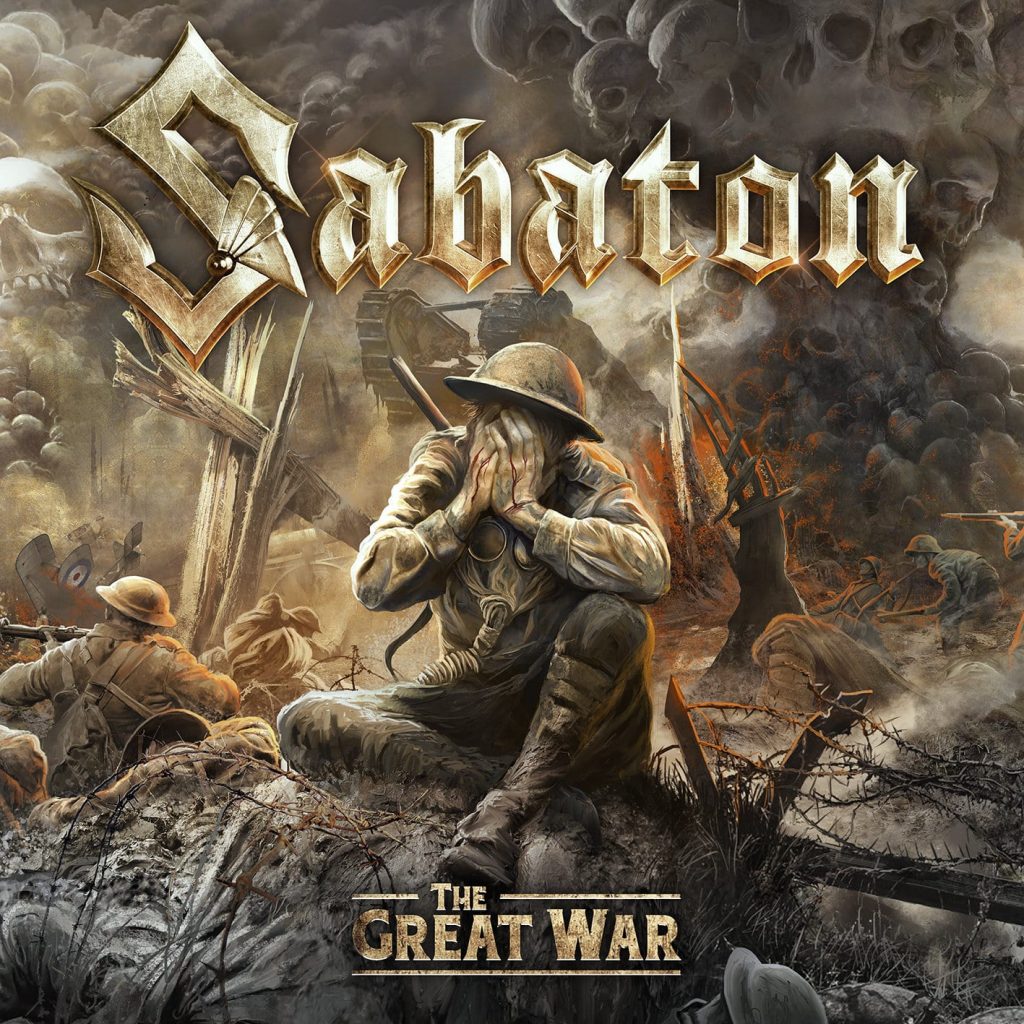
GRIMM: So, about World War One. Alot happened but what inspired you to take the stories that we will hear on the album?
We have made songs about World War One before. We did enjoy that and it really fits for us. It is interesting and not so well known as World War Two. But for us it gives a perfect base for Sabaton songs. We thought about doing it for a long time because we gathered so many stories to cover. And even though we had other ideas we discussed for this album, we thought that the timing was right to have this CD since the century anniversary from the armistice. It was absolutely the best timing in our lifetime to do it. And the other projects we could think about we could push. They did not need to be made right now.
The individual topics, we had a couple of them immediately. I would say when we decided to do World War One, we would already have some ideas for songs. One from the guy flying in the next room (in the next room of the museum there is a replica plane of the Red Baron). We know we wanted to do a song about the battle at Verdun and Attack of the dead man is one that we really wanted to do for many years now. Then we wanted to do ‘the Christmas Truce’ which we didn’t do. Because we could not write a song for it. Maybe in the future.
GRIMM: Considering ‘Attack of the Dead Man’ is a gruesome story and you had to do research about this. How do you feel dealing with all these dark stories?
A lot of stories are not easy but that does not make them less interesting. And actually, for this album we did not have to do a lot of research our self. We have the Sabaton History Channel with Indy Neidell, who is an expert in World War One. We would have all the stories that we needed. In comparison of getting information about these stories was easier than for the other albums.
It is interesting to see what resources we have available now in comparison of when we started. In the past we had to translate texts our self. But now on the Sabaton History Channel there are three working historians and for the new Sabaton.net website there are another three historians and history students employed for the content writing. We really have a lot of sources now for our website, as well as our history channel and albums.
GRIMM: Like the Christmas truce, were there any other songs that you wanted to make but did not make the album?
We had a cool title and we wanted to do it and it would be really funny. We had “the white death” but there was “the black death” as well. It was a part of Harlem Hell fighters; there he was known as “the black death”. So, we would have a song “white death” and “black death”. We did not find what would be needed to be excited to write this song. The information we had about it was not that well certified. This is a black guy in the beginning of last century, it was not so popular to include him into the history books in those days.
GRIMM: When you released the single “Fields Of Verdun”, what where the reactions from the fans? Did you expect them?
We didn’t know what everybody expected. Because we knew some people would compare the song to “Bismarck” and we hoped they didn’t judge upon it. “Bismarck” was a once in a lifetime possibility of doing a music video, which is way out of what we normally could do. And if someone was about to judge it on the production of that, tough luck. We can’t do that again sadly enough. But when it comes to the song: it is two very different songs and we feel very comfortable with Fields Of Verdun. But funny enough it is the song that everybody in the band said: ‘’this is not a single. It is not the best song on the album. It was a good song, but it is maximum top 5”. Funny enough it is not nearly that good and Thobbe, who wrote it, he said this is the least good song on the whole album.
GRIMM: Considering it is the least good song will you perform it live?
Now it will definitely be played a lot. Because now people have heard it and it is out there. People are excited to hear it. So, you can definitely expect it on Graspop Metal Meeting.
GRIMM: Thobbe played the solo in ‘Fields Of Verdun’. Are there any other musicians that contributed to the album?
Thobbe played the whole guitar in the studio actually. But no, there are no other musicians involved in the album. Thobbe is the only guest musician for this. But there is another version of the album which is called “The Soundtrack to the Great War”. Which we have kept a little out. There are some other musicians there. They play different roles and it is not a heavy metal album. It is sort of classical, orchestrated and instrumental album featuring some artists not know to metal people. It is just a side story.
GRIMM: Is the album “The Great War” going to have similar sounds to “The Last Stand”? Or did you try something new and go crazy?
We didn’t go crazy. We tried to do an album and succeeded this with our partner Jonas Kjellgren, who has not been the producer of a Sabaton album before. He has done live songs and a couple of singles, that is why we chose him. Because 3 years ago he helped with the stand-alone track; a cover of Manowar’s “Kingdom Come”. A lot of people commented that they liked the sound. So, we decided if the people like it we go further with Jonas and make it bigger. But we didn’t do many new things. Not a lot has changed really.
GRIMM: Who wrote most of the lyrics and music for the new album?
It is Joakim that wrote most of the music together with the other guys. But he is the person that makes it sound Sabaton. And for the lyrics it is mostly Joakim and me. We make the concept and write the lyrics from that. In the whole period of what we are doing the moment before we go to the studio, that is my most quiet time. I don’t have many projects to work on, because we don’t know the outcome of the album. I get my ideas when I hear where we go with the album. When we are done it starts to get busy for me. We need to go to Verdun, we need scripts, we have to market it this way and promote it that way. You have a lot of stories like Attack of the Dead Man that need another tactic to market it. But I cannot really do much without having the recording of it. It is my slowest time and Joakim’s busiest time. So once the album is done the projects starts; Like now I do 400 interviews in a row in Europe. And then comes America and Asia.
GRIMM: We were able to listen to The Great War and we have a question about “In Flanders Fields”. Why did you do the song like it is recorded on the album?
It was impossible to miss it. We were trying to find music, texts and all kind of material from World War One to give us some inspiration. And this one always came up. We thought about doing it, but we’ll do it our way. There are many different versions done of this poem into different music over the years. Originally, we had plans to include drums and guitars but we changed our minds. Especially since the track before was “The End of the War to End All Wars”. Which ends on such a level I don’t know Sabaton has ever been there before. In terms of bombastic production. And if we would end the album on that the listener would crash dive. We needed to give the listener a sort of parachute for a soft landing and that was the song. So, we needed to soften it down. So, we took the instruments away and only kept the singing.
GRIMM: Ending the album with “The End of the War to End All Wars” would have left it incomplete. “In Flanders fields” gives it the ending it deserves.
Yes, indeed and I also hope that after the song people will start thinking. After all it was a cruel war.
GRIMM: There are some rumors and speculations about who or what the song Ghost in the Trenches is about. Can you elaborate?
It is a Canadian native called Francis Pegahmagabow and he was the most successful and efficient sniper of World War one. He would sneak around even in enemy trenches and would take souvenirs, acting like a ghost. His story was quite remarkable and there was also this legend when at one point when his troops were under siege of a gas attack. He was able, through some Indian ritual, to change the course of the wind. But he could also have been lucky. We will never know.
GRIMM: Which song is your favourite? What do you like to play the most or what is the most fun sound wise?
I think it will change overtime as well. Possibly the song “The Great War” at this moment. I think it sounds something like between Primo Victoria and Carolus Rex. It is fun to play and tells a great story. And asks a good question. So, I think this one for now.
GRIMM: You guys released a good amount of albums: Primo Victoria, Heroes, Coat of Arms,..; But where would you rank the new album “The Great War” between them?
I do not think it is up to me and I cannot do it right now. Once we have recorded an album it has such an emotional impact on us. We do not hear the songs. We listen to individual performances. So, when we discuss we all just listen to our own parts. Everybody is focused on it like: “I don’t like this or that thing that I was doing.” So, everybody is too close and nobody can see the album with a little bit of distance. For now, we only want it to be released and get feedback from the fans.
GRIMM: Do you look forward to the feedback from the fans?
Yeah definitely! I have received already enough feedback for knowing that it is a good album. So, I am not worried at all. Because of sentimental reasons people will say something else. They might say “I like Art of War more because it was the first album or I like this or that”. But without that into consideration. It is a strong album.
With that we concluded our talk about the album ‘The Great War’, but Pär was not done talking yet. Stay tuned for the 3rd and last part about their plans for upcoming shows and the Sabaton History Channel.
For part one, go here: https://www.grimmgent.com/interview-par-sundstrom-sabaton-part-i/
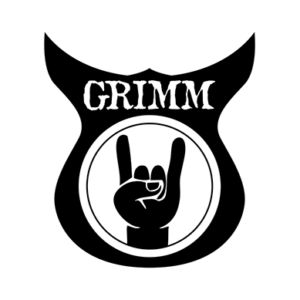

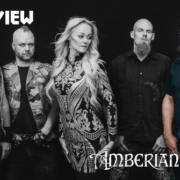

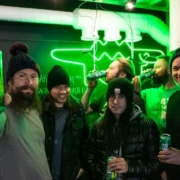
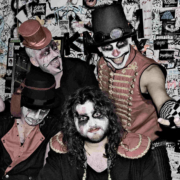
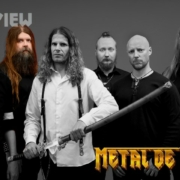




Leave a Reply
Want to join the discussion?Feel free to contribute!